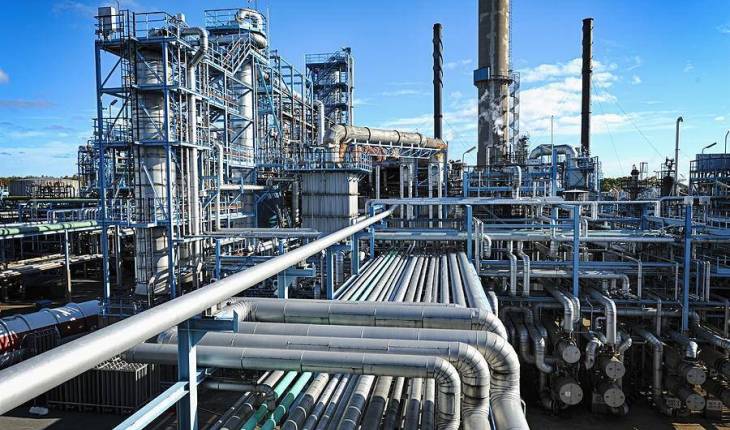- Indonesian Firm to Build Refinery in Nigeria
An Indonesian firm, PT Intim Perkasa Nigeria Limited, a subsidiary of PT Intim Perkasa, has indicated interest to build a refinery in Nigeria, the Nigerian National Petroleum Corporation has said.
The NNPC said PT Intim’s interest in the country was in line with the Federal Government’s plan to attract investments in modular refineries, as part of efforts to boost the local refining capacity.
The corporation stated that the Head of Investor Relations, PTPP (Persero) Tbk, partners to PT Intim Perkasa Nigeria Limited, Mr. Adi Hartadi, disclosed this in Abuja during a meeting with the Group Managing Director of the NNPC, Dr. Maikanti Baru, adding that the proposed refinery would be located in Akwa Ibom State.
The Group General Manager, Group Public Affairs Division, NNPC, Mr. Ndu Ughamadu, in a statement issued in Abuja on Wednesday, noted that the modular refinery would have the capacity to refine 10,000 barrels of crude oil per day.
Hartadi, according to the statement, said the company had more than 50 years’ experience in construction and engineering, adding that it was desirous of diversifying into downstream operations in Nigeria.
Baru, who was represented by the Chief Operating Officer, Refineries and Petrochemicals, Mr. Anigbor Kragha, said the NNPC placed high premium on investments in the refining sector.
He said the corporation had a Greenfield Refinery Department that specialised in new refinery projects and was also providing professional support to potential investors in modular refineries in line with the Federal Government’s policy on modular refineries.
Baru explained that the country’s three refineries, with a combined capacity of 445,000bpd, could not function optimally over the years due to lack of investment, adding that the NNPC would give necessary support to the Indonesian company in the downstream sector.
He was quoted as saying, “On our end, we have embarked on an ambitious plan to fast-track programmes that will restore our capacity utilisation from 30 per cent to a minimum of 90 per cent in the next 24 months.
“To do that, we are working on securing financing from third parties; not just funding, but also technical expertise to help us increase our performance to world class levels that they should be.”
Baru stated that given Nigeria’s expected population, more than 40 million litres of petrol would be required for local consumption, adding that the combined capacity of the nation’s three refineries would only be able to satisfy a little above 50 per cent of the projected local demand.
The GMD called on investors to be mindful of the clean fuel policy adopted by African countries and ensure that they produce fuels that meet specifications with regards to sulphur content.
In his address, the Third Secretary for Economic Affairs, Indonesian Embassy in Nigeria and the leader of his country’s delegation, Dr. Dwiyatna Widinugraha, said the visit was a follow-up to the earlier one by the Indonesian envoy to the NNPC, the bilateral meeting between the trade ministers of both countries as well as the visit of Indonesian Prime Minister to Nigeria.
The Indonesian Ambassador to Nigeria, Mr. Harry Purwanto, had recently expressed his country’s interest in purchasing more crude oil from Nigeria during a courtesy visit to the NNPC.

 Forex2 weeks ago
Forex2 weeks ago


 Naira2 weeks ago
Naira2 weeks ago
 Naira4 weeks ago
Naira4 weeks ago
 Company News4 weeks ago
Company News4 weeks ago
 Billionaire Watch1 week ago
Billionaire Watch1 week ago




 Naira2 weeks ago
Naira2 weeks ago




 Naira4 weeks ago
Naira4 weeks ago




 Naira1 week ago
Naira1 week ago






















